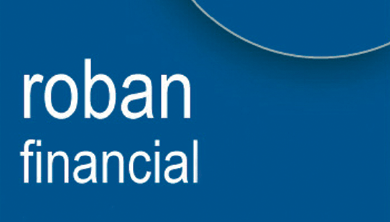Some of the main options we will consider for you based on your circumstances are:
- Pension Plan
- Short term deposit account/savings Plan
- Medium – Long term investment plan
Pension plan
If you can lock some money away for the longer-term,start a pension plan. It is the most tax-efficient way to save for your retirement. Because pension plans are long-term, with tax relief and tax-free growth, you can expect good returns.
Short Term – Savings and deposit accounts
These are generally suitable ways to save for your short to medium term goals. They give you capital security (protecting your original deposit), and you have access to your money reasonably quickly. The rate of return, or growth, is usually low.
There are longer-term plans, say for five years or more. They are better suited to meet your longer term goals, and promise a better return than savings accounts. But, as most investment plans are linked either to property or stock markets, their growth is not guaranteed and your original investment may not be secure.
Consider spreading your risk by putting some money in savings accounts and some in longer term investments. This will give you access to part of your money for short-term needs and the potential of higher growth on your longer-term investments.
Your options would include savings and deposit accounts, notice account and regular savings plans.
Medium to Long Term – Investment Plan
You may want to provide for your longer term needs such as education costs, retirement and financial security.
For these needs, you will want to get a better return on your money than you could with a deposit account. That usually means investing in assets such as shares and property and committing your money for five years or more.
There are many investment products available to you which are managed on your behalf by life assurance companies and investment firms.
The most widely available personal investment products are:
- tracker bonds; and
- unit-linked investment plans.
Tracker bonds
Tracker bonds are fixed-term investments that are linked to the stock market. The smallest lump sum you can usually invest is about €5,000. They usually provide some form of security for your investment though it may not be 100%. This reduces the capital risk. They are usually fairly low-risk investments so you shouldn’t expect too high a return.
Unit-linked investment plans
With unit-linked investment plans your money is ‘pooled’with money from other Investors and used to buy units in an investment fund. The number of units depends on how much you invest and the price of the units at the time you buy.
You can invest a lump sum or make regular savings. Investment managers manage the overall fund and decide how to invest it across a mix of assets, such as: cash, or high-interest deposits, bonds, which are issued by governments and companies and pay a fixed rate of interest for a set time, equities, or shares in Irish and international companies that are quoted on stock markets and property, which is a mix of commercial properties such as offices and shops that produce an income from lease or rent.
Most unit-linked plans do not protect your capital. This means that the value of your investment may rise or fall depending on the performance of the assets the fund invests in.
You can choose from a range of different funds to suit your attitude to risk. These include low risk deposit type funds, medium risk funds and higher risk funds that invest almost completely in the stock market. The ‘safer’ the fund the lower the potential return. Higher-risk funds may offer better growth prospects but involve more risk to your capital.
Plans with some capital security
Some unit-linked plans offer a ‘money-back’ promise on a particular date, or dates (for example on the 6th anniversary). This means if you cash in your investment on that exact date, you will get back at least the amount you invested. This gives some protection if the fund has performed poorly. If you withdraw outside of the money-back promise date, you may lose some of your original investment. Plans that offer capital security generally have lower potential for growth than other unit-linked plans.

